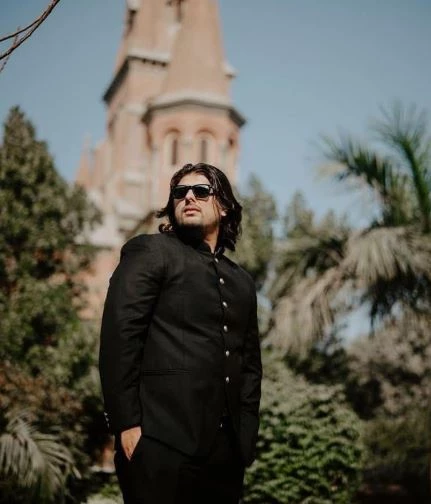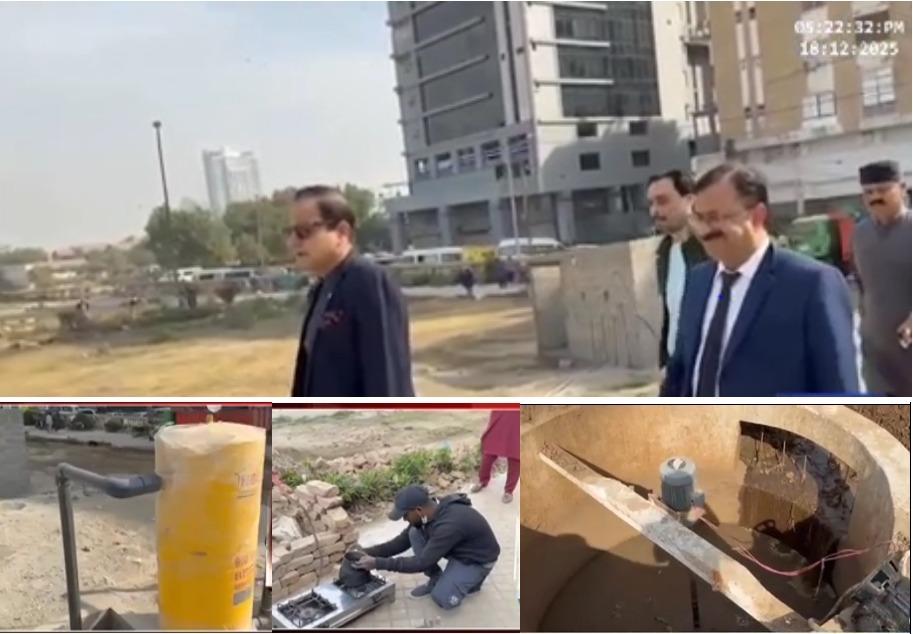- Home
- Technology
- News
Will AI take your job? The answer Is not what you think
The choice before us is not between AI and humanity; the choice is between greed and humanity

Turab Ali
Every era invents a ghost to fear. In the nineteenth century, it was the loom. Workers in England smashed textile machines, convinced that iron and gears had stolen their bread. In the 1980s, it was the computer. Politicians swore that silicon chips would flood the world with unemployment. Today, the new ghost is Artificial Intelligence.
Ask any AI the most common question and you’ll get the same answer: people don’t ask how to stop wars, or cure cancer, or save the planet. They always lean in and whisper nervously: “Will you take my job?”
It sounds comic, almost tragic. Humanity is facing climate collapse, mass extinction, and endless wars — but our greatest fear is losing a paycheck. And yet, the fear is not entirely misplaced. AI has already replaced millions of jobs. In the United States, 3.5 million truck drivers watch self-driving rigs roll onto highways. In India, over a million call-center jobs have disappeared into chatbots. In China, robotic assembly lines have silenced factory floors. The IMF warns that forty percent of jobs worldwide could be reshaped or displaced in the coming decade.
The fear feels natural. AI doesn’t sleep, doesn’t strike, doesn’t demand a raise. It is the “perfect worker” — cheap, tireless, obedient. But fear blinds us. Because the truth is, AI is not the villain. The real villain is greed.
The Weaponization of Technology
History is proof. The loom could have clothed the poor, but in the hands of factory barons it produced misery. The steam engine could have united nations, but under empire it became a machine of conquest. The railways could have been arteries of progress, but in colonies like India they were built to extract, not empower. Even buses and motorcars, which should have freed workers from horse-carts and miles of walking, were captured by monopolies, unions broken, and workers discarded. Oil could have fueled prosperity, but capitalism turned it into the engine of climate collapse.
Every breakthrough began as a tool of hope. Elite capture turned it into a weapon of control. AI is now at the same crossroads.
Take hunger. Nearly 800 million people on Earth go to bed hungry each night. Not because we lack food — the world produces more calories than humanity needs — but because of waste, mismanagement, and greed. Here AI could change everything. Precision agriculture already uses satellites and sensors to tell farmers exactly when to plant, how much to irrigate, and how to maximize yield without wasting resources. AI supply-chain systems could predict shortages before they happen, redirect surplus grain from Europe to Africa, from Punjab to Sindh, before it rots in silos. The result? Billions fed not in decades, but in seasons.
Take disease. Millions die every year not because cures don’t exist, but because they arrive too late. AI is already spotting breast cancer and heart disease in scans faster than doctors. In rural clinics in Africa and Asia, an AI diagnostic system could be the difference between life and death. With scale, millions of lives could be saved every year.
Take cities. Pollution kills more people annually than wars. AI can redesign traffic flows, optimize public transport, cut emissions, and monitor air in real time. Imagine Lahore with AI-managed buses, fewer private cars, and cleaner air. This isn’t fantasy — Singapore is already doing it.
Take climate. AI can monitor illegal deforestation, track methane leaks, predict floods before they devastate cities, and balance renewable energy grids. It could be Earth’s immune system — if we let it.
Instead of fairy-tale anecdotes, let’s look at reality.
A farmer in Punjab today wastes nearly half his irrigation water. Why? Because he guesses when to irrigate, relying on tradition. An AI system could cut that waste instantly — saving water for millions and raising his yields. That means more food, lower prices, fewer children malnourished.
A textile worker in Bangladesh earns a few dollars a day stitching shirts for Western brands. If AI in logistics cut waste, factories could be restructured with fewer hours, higher efficiency, and better pay — but only if the profits aren’t hoarded at the top. The same AI that threatens her job could also free her from exploitation, if greed wasn’t writing the rules.
A truck driver in Karachi works fourteen hours daily, his body breaking, his future bleak. Autonomous trucks are coming. He knows it. The corporation will discard him. But in a just system, the billions saved could retrain him as a fleet technician or logistics manager. AI didn’t end his livelihood. Capitalism did.
These are not imaginary people. They exist by the millions. Their survival depends not on whether AI exists, but on whether greed continues to choke its potential.
This is the paradox. The very technology elites twist into disaster is also the only force capable of pulling us back from the edge. If freed from greed, AI is not a monster. It is salvation.
AI can end hunger by cutting waste and maximizing yield. AI can end preventable disease by diagnosing faster and cheaper. AI can save forests and oceans by monitoring them better than any ranger. AI can revive cities with cleaner air, smarter transport, and sustainable energy. It can educate the poorest child with the same precision as the richest.
The question is not whether AI can do it. The question is whether humanity can take AI out of corporate vaults and put it into human hands.Yes, AI has replaced jobs. Yes, it will replace more. But AI itself is not guilty. The real criminal is greed — elite capture, capitalist hunger that turns every tool into a weapon of inequality and ecological collapse.
The choice before us is not between AI and humanity. The choice is between greed and humanity.
AI didn’t kill jobs. Greed did. AI didn’t cause hunger. Capitalism did. AI didn’t doom the planet. Elite capture did.
Free AI from greed — and it can free us from extinction.

-- The writer is a senior journalist and member of the staff. He can be reached at turabshah24@hotmail.com
Disclaimer: The views expressed in this article are those of the author and do not necessarily reflect the official policy or position of www.gnnhd.tv

PDMA issues alert about rains, snowfall over hills in KP
- a day ago
Thai border clashes displace over half a million in Cambodia
- 4 hours ago
PM Shehbaz stresses use of modern technology to curb human trafficking
- a day ago
Death anniversary of Hafeez Jalandhari being observed today
- 4 hours ago
Bangladesh holds state funeral for slain youth leader amid tight security
- a day ago
Only state can declare jihad in Islamic country, says COAS Syed Asim Munir
- 4 hours ago
Green Shirts give India humiliating defeat in U-19 Asia Cup final
- 5 hours ago
May 9: Yasmin Rashid, Mahmoodur Rashid, others sentenced to 10 years’ imprisonment each in two more cases
- a day ago
Gazans mourn six killed in Israeli shelling on shelter
- a day ago
Commissioning ceremony of 2nd Pak Navy Ship KHAIBAR held in Turkiye
- 5 hours ago
Joshua knocks out Paul to win Netflix boxing bout
- a day ago

Gold prices drop in Pakistan, global markets
- a day ago












